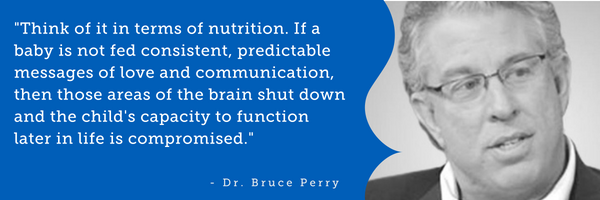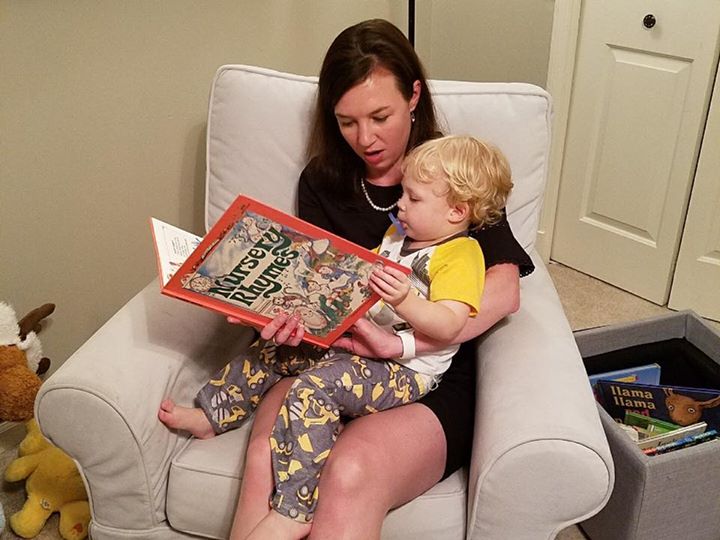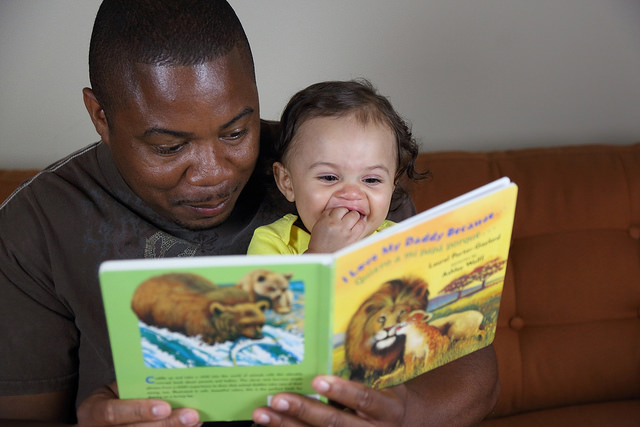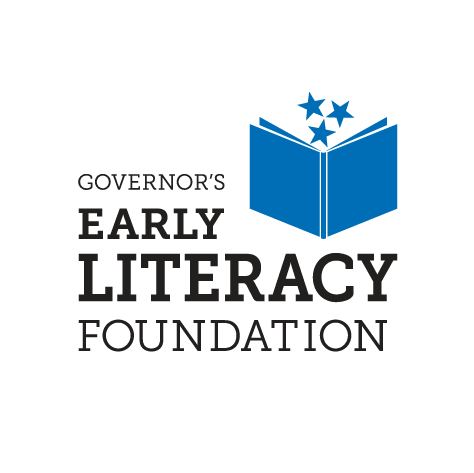Mother’s Day is this weekend, and Father’s Day is around the corner. As we celebrate the parents and caretakers in our lives, we want to take a moment to also talk about the important role they play in early literacy and brain development of our little ones.
The First 5 Years Matter
Reading with your children is a powerful tool for early literacy. It also creates an important bond and can play an essential role in brain development. In fact, during pregnancy and throughout a child’s first three years, more brain development occurs than at any other time in life.

Research from Dr. Bruce Perry, Senior Fellow of the ChildTrauma Academy, says,
- When a baby is born, his brain houses over one hundred billion neurons that will chart paths and make connections based on the social experiences they encounter.
- By the age of two and a half, approximately 85 percent of the baby’s neurological growth is complete, meaning the foundation of their brain’s capacity is in place.
- By age three, the child’s brain is 90 percent of its completed adult size.

Reading Creates a Necessary Bond
Reading with your children at a very young age is an important part of secure attachment, which is the mutually attuned bond of trust between the primary caretaker and the child.
Research from Dr. Tami De Coteau, licensed clinical psychologist at DeCoteau Trama Informed Care Practice, says,
- Secure attachment forms the basis of all future relationships, sense of self-worth, resilience to stress, ability to regulate emotions, and create meaningful connections with others.
- Interactions of a young child with others stimulates the part of the brain responsible for attachment. Communication, both verbal and nonverbal, influences the child’s mental process.
- This safe and secure communication is necessary to establish secure attachment.
- If the attachment region of the brain is not properly stimulated at the critical period of development, then that region and all other regions below and above are affected.
At the recent ‘Summit on Children: The Science and Story of Poverty,’ Dr. Tammy Pawloski, director of the Center of Excellence to Prepare Teachers of Children of Poverty at Francis Marion University talked about how the brain continues to develop daily and how parents and educators should be aware of how to nurture that development. Just talking to a young child and reading to them daily builds pathways in the brain leading to greater cognitive development. If the attachment region of the brain is not stimulated at the critical period of development, then that region and all other regions below and above it are affected.

What We Can Do
Reading with children can be an essential tool in brain development and forming important bonds. Here are a couple tips for reading with your little ones:

- Make time every day to read with your child. This can be snuggled up at bedtime for sure, but reading time can be anytime and anywhere.
- Create a special reading space in your home. Include their favorite blanket or pillow and stack of books from which to choose.
- Read together in an interactive style. Ask questions and interact with your little one as you read. Find out what they think about a character or ask what their favorite part of the book is.

What are your tips for reading with your children? Share them with us on social media. We will compile the best ones to list on our website.

We would love your feedback! Even with busy schedules, jobs and errands, it is important to make reading with your children part of your daily routine. In the age of technology, we are surrounded by email, social media, news and messages sent directly to our fingertips. Take this two question poll to tell us what you think. (If the poll isn’t visible below, please click here.)




